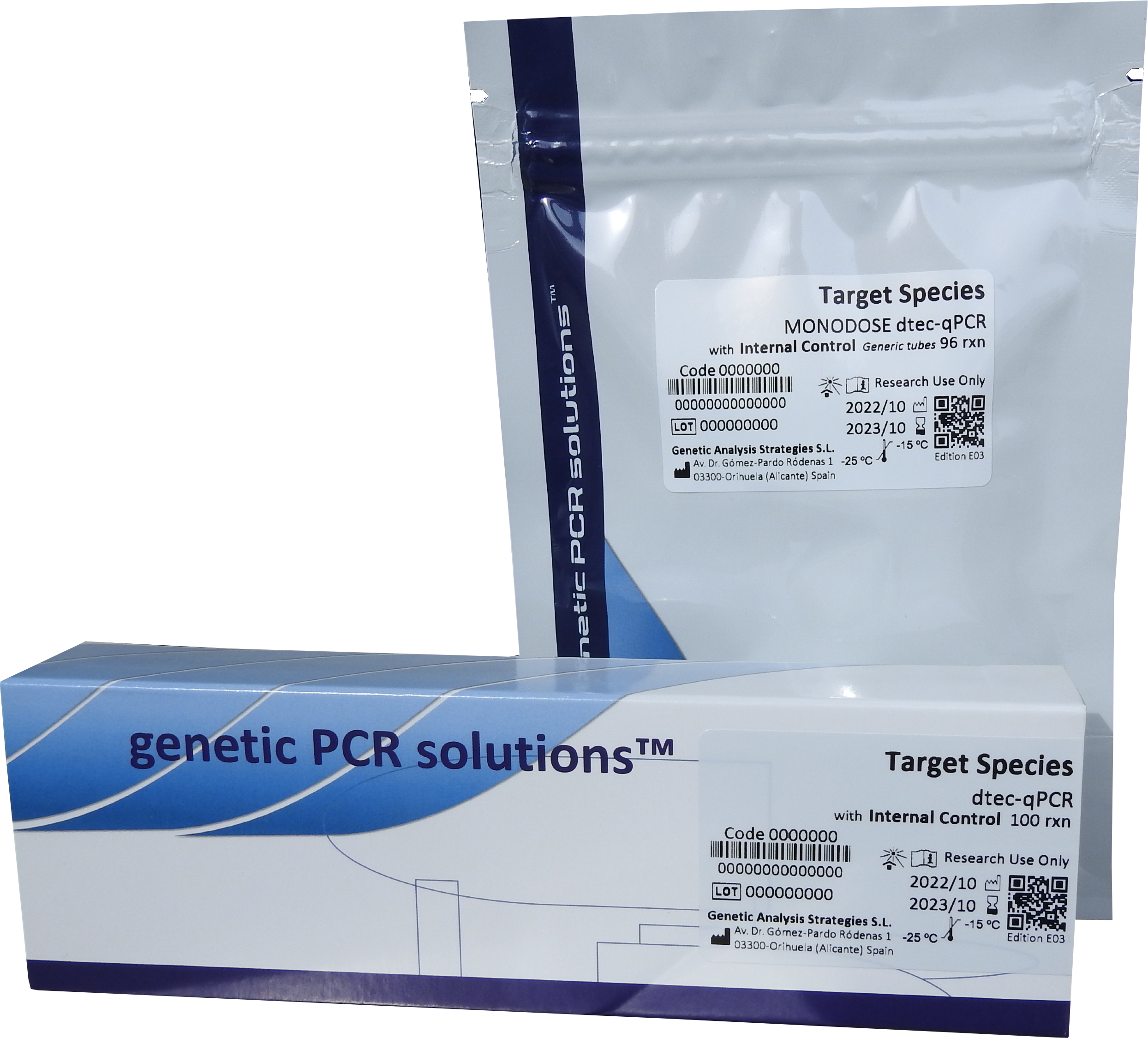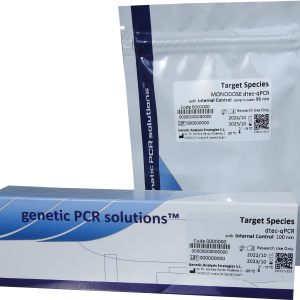Pseudomonas syringae
Description
The PseSyr dtec-qPCR comprises a series of specific targeted reagents designed for Pseudomonas syringae detection by using qPCR. Pseudomonas syringae is a rod-shaped, Gram-negative bacterium with polar flagella belonging to the Pseudomonadaceae family. This species is a plant pathogen with more than 50 different pathovars, but whether these pathovars represent a single species is unclear. It is a nutritionally versatile organism that thrives on damaged plant tissues, and most notably, colonizes the surface of plant leaves. It is important to remark that not all strains of P. syringae are necessarily pathogenic and can develop in non-host plants. The strains that are pathogenic are specific to a particular species of plant, infecting and causing disease through the release of toxins and cell wall degrading enzymes. A sign of pathogenic activity by P. syringae on plant leaves is usually the presence of lesions or, depending on the strain, spots that develop on leaf surfaces.
Kit Content and Prices
GPS™ primers and probes are sold for research use only
All GPS™ Kits are available in F100 and MONODOSE Format
GPS™ reagents are compatible with all qPCR devices



